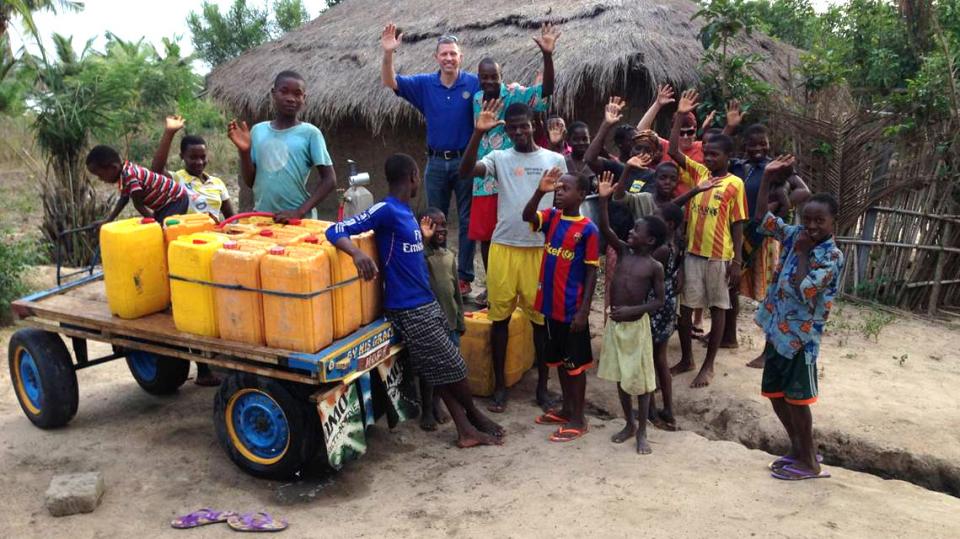Clubs breaking down barriers to clean water in Ghana

Rotary club members Craig Sorensen and Marty Hatala pose with residents and the first supply of water brought to the village of Adevukope.
Photo Credit: Courtesy of Craig Sorensen
Though at least 80 percent of the country's population has access to improved water sources, according to UNICEF, 5 million Ghanaians still use water from unsafe sources. That leaves a significant part of the country's population susceptible to a range of diseases. Worldwide, one out of every five deaths among those under the age of five is caused by water-related diseases.
Hatala's experiences in Ghana led to a series of joint projects between the Rotary Club of Boaz and the Rotary Club of Alabaster-Pelham, also in Alabama. For their first two projects, members installed two water wells in Aflao, a town in the Volta region. And more recently, they joined forces with two other Alabama clubs to provide clean water, but also to significantly reduce the time and effort that go into finding and fetching water. According to United Nations worldwide statistics, up to 40 billion hours a year are spent fetching water, primarily by women and children.
"People in this area would normally walk a minimum of 2 to 7 miles looking for water, depending on when the last rain was," Hatala says. "Water not only gives them a chance for life but saves hours and hours for a mother and her children every day."
With the help of local community leader Emmanuel Fiagbedzi, Hatala says they were directed to Afife, a region that had something Aflao did not: an existing water source that could be tapped with a distribution system. The Rotary members installed pipe stands in nine villages and in places deemed important to the participating communities, including a common market, a boarding home, a school, and a poultry farm.
Craig Sorensen, president of the Alabaster-Pelham club, applied his expertise in water and waste management, while Hatala met with village leaders to keep them informed and involved in the project. With the cooperation of local leaders, who offered to provide the manual labor to extend the pipelines to their villages, the project reached nine villages instead of the planned six.
"Based upon the communications and relationships and what we had learned from the first two projects, we discovered that we could run a line from a different water source that had lots of capacity, and we could extend the reach of the well via pipelines to these remote villagers, for about the same price as our first two projects," Sorensen says.
Although the water distribution project wrapped up in early March, Sorensen says all the clubs involved are planning a fourth project and considering water sources in other regions. Their overall goal continues to be to improve the lives of as many people as possible.
"It was really rewarding to create a difference in the lives of the villagers there, and their families and their future families," Sorensen says. "This project, and the fact that they have water available to them in more locations, is going to impact other issues, from health to education to income and time available. It's just going to be a game changer for those villages. I tell people that we've impacted generations."
By Daniela Garcia
Rotary News
12-Aug-2014